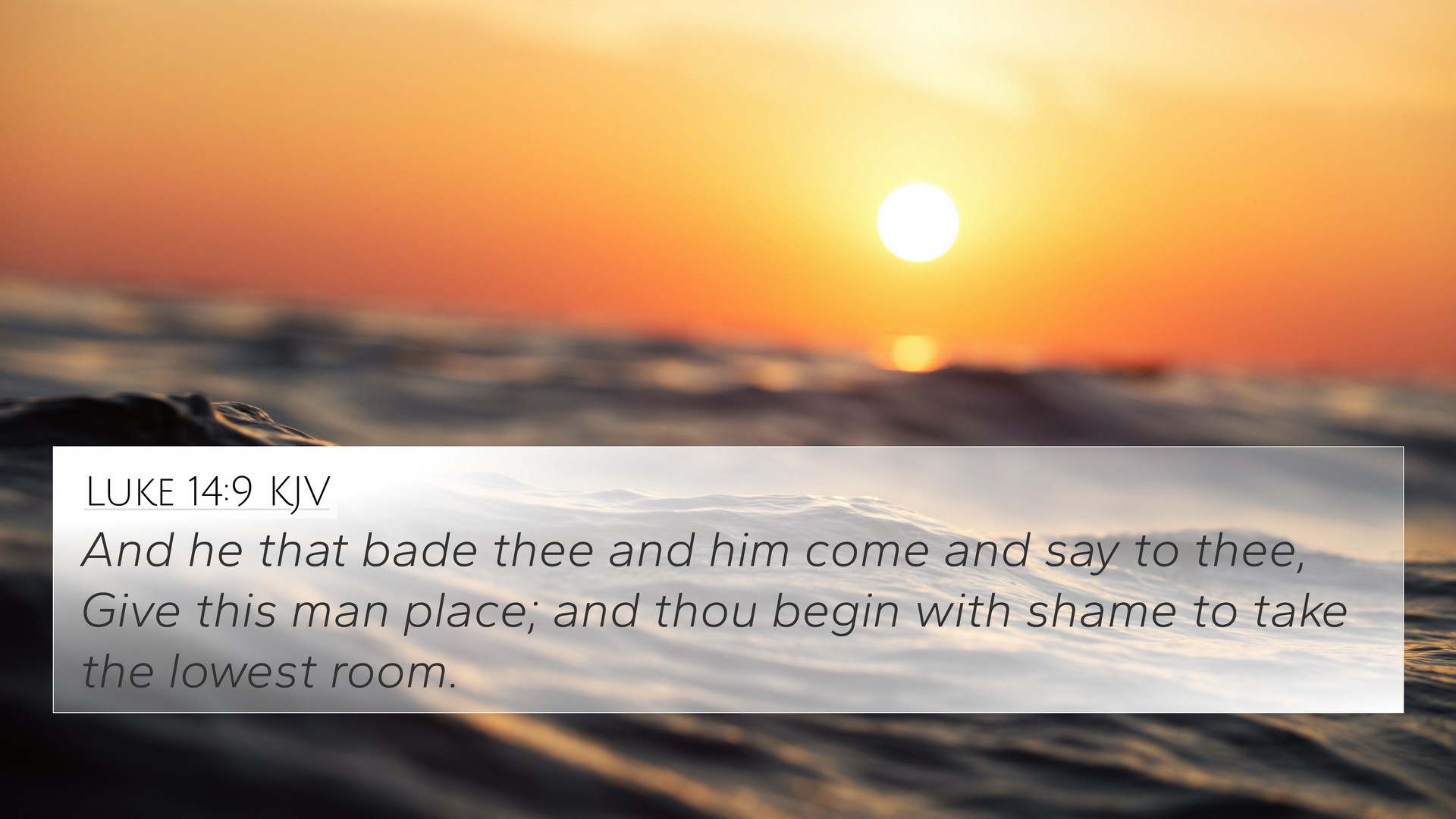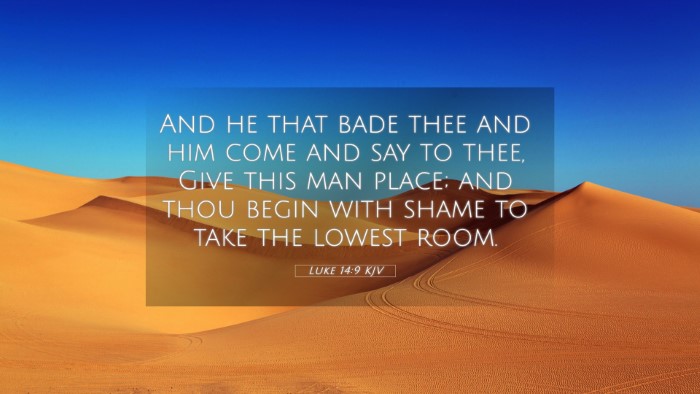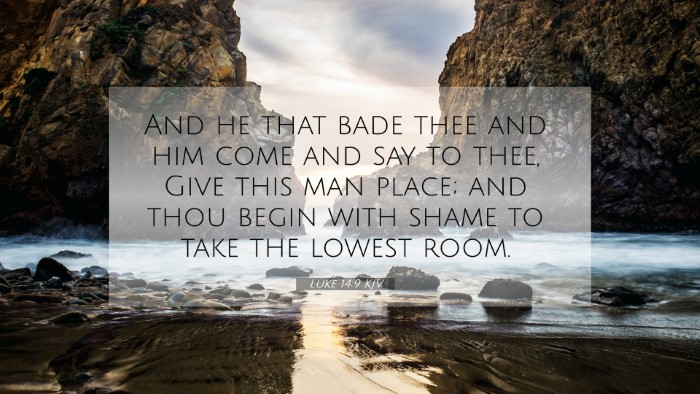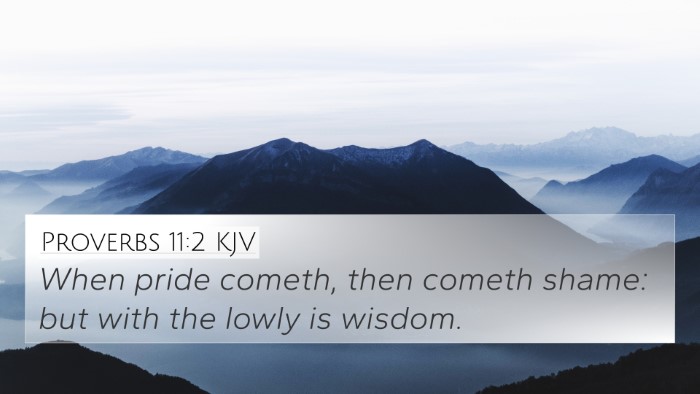Luke 14:9: "And he that bade thee and him come and say to thee, Give this man place; and thou begin with shame to take the lowest room."
This verse from the Gospel of Luke highlights a principle that is crucial in Christian teaching: the importance of humility and the dangers of seeking honor for oneself. The context of this verse is part of a parable Jesus tells regarding a banquet, which serves to instruct the listeners on proper behavior and attitudes within social and spiritual realms.
Summary of the Verse's Meaning
According to various public domain commentaries:
- Matthew Henry: He emphasizes that the verse teaches the virtue of humility. The act of taking the lowest seat at a feast reflects a heart posture that places others before oneself. This humility may lead one to be honored by those who host the gathering.
- Albert Barnes: Barnes notes that this verse illustrates the social customs of the time, showcasing the principle that it is better to be invited to a higher position than to be embarrassed by being moved down from a higher seat. He highlights that this scenario metaphorically applies to life in the Kingdom of God, where humility is exalted.
- Adam Clarke: Clarke adds that this teaching calls believers to recognize their own worth in the eyes of God, which is defined not by status or recognition from others, but by a contrite spirit. This reinforces the idea that divine praise is more desirable than human accolades.
Connections Between Bible Verses
This verse relates to several other scripture passages which reinforce its themes:
- Proverbs 25:6-7: "Put not forth thyself in the presence of the king, and stand not in the place of great men: For better it is that it be said unto thee, Come up hither; than that thou shouldest be put lower in the presence of the prince whom thine eyes have seen."
- Matthew 23:12: "And whosoever shall exalt himself shall be abased; and he that shall humble himself shall be exalted."
- James 4:10: "Humble yourselves in the sight of the Lord, and he shall lift you up."
- Philippians 2:3-4: "Let nothing be done through strife or vainglory; but in lowliness of mind let each esteem other better than themselves."
- Luke 18:14: "For every one that exalteth himself shall be abased; and he that humbleth himself shall be exalted."
- 1 Peter 5:6: "Humble yourselves therefore under the mighty hand of God, that he may exalt you in due time."
- Matthew 5:5: "Blessed are the meek: for they shall inherit the earth."
Thematic Bible Verse Connections
These verses illustrate a cohesive biblical theme surrounding humility and exaltation. They guide the faithful on how to navigate social and spiritual standings:
- Bible verse parallels: Consider how the principle of humility is equally pronounced in both the Old and New Testaments.
- Scriptural cross-referencing: The theme of being humble extends beyond mere etiquette to a deeper understanding of one’s standing before God.
Tools for Bible Cross-Referencing
To study this verse more comprehensively, one can utilize:
- Bible concordance: To find lexical connections and themes.
- Bible cross-reference guide: A practical resource for understanding inter-Biblical dialogue.
- Cross-reference Bible study: A methodical approach to explore how different texts relate to each other.
User Intent Keywords
If someone were to ask, "What verses are related to Luke 14:9?" they might explore:
- Find cross-references for Luke 14:9: Discovering its relationship to teachings found throughout the Gospels and epistles.
- How do Luke 14:9 and Matthew 23:12 connect? Both emphasize the consequences of seeking self-exaltation versus humility.
Conclusion
Luke 14:9 encapsulates a profound Christian principle tying back to a wider narrative within the Bible that values humility over pride. The teachings iterated in this verse, when synthesized with others, reveal the holistic biblical messages advocating lowliness of spirit, which ultimately leads to divine exaltation.








